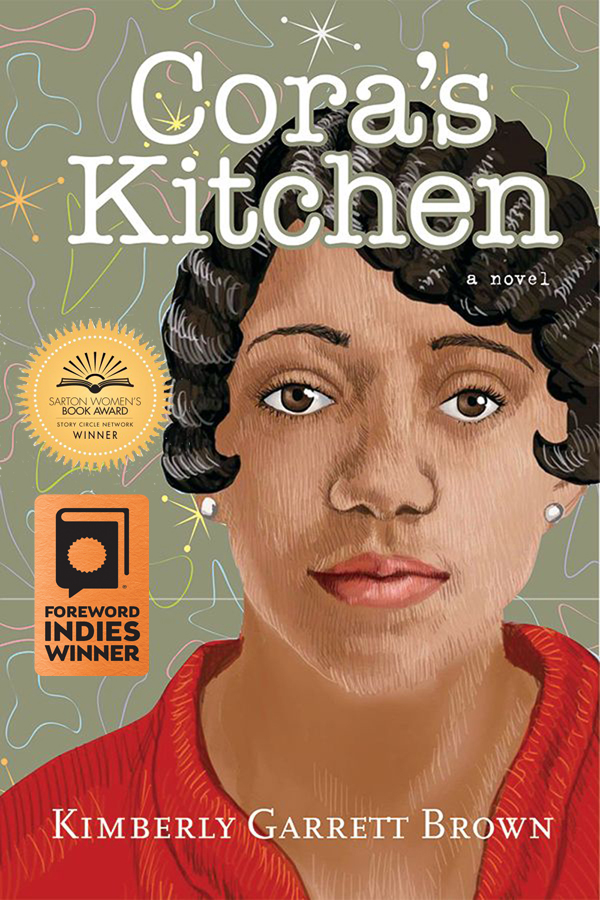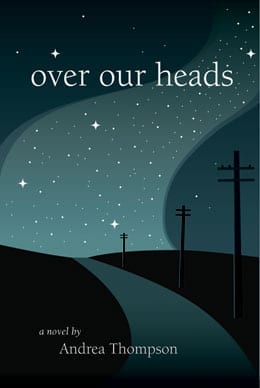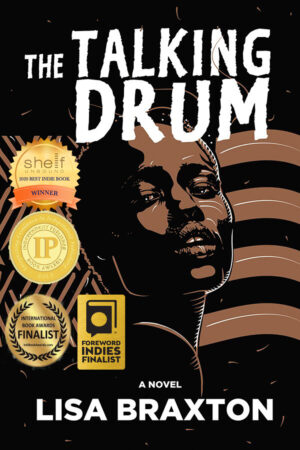Winner, 2022 Sarton Awards – Historical Fiction (Story Circle Women’s Book Awards)
Winner (Bronze), 2022 Foreword INDIE Awards – Multicultural Fiction
Cora James, a 35-year-old Black librarian in Harlem, dreams of being a writer. Torn between her secret passion and the duties of a working wife and mother in 1928, Cora strikes up correspondence with renowned poet Langston Hughes, who encourages her to pursue her dream. Duty frustrates Cora again, this time when she’s called upon to fill in for her cousin Agnes while she recovers from a brutal beating by her husband Bud.
Working as a cook for a white woman, Cora discovers both time to write and an unlikely ally in Mrs. Eleanor Fitzgerald, who becomes friend, confidante, and patron, encouraging Cora to rise above what’s commonly thought of as “a woman’s lot.” Yet, through a series of startling developments in her dealings with the white family, Cora’s journey to becoming a writer takes her to the brink of losing everything, including her life.
“Cora’s Kitchen delves deeply into what it means to be a Black woman with ambition, to make choices and keep secrets, and to have an unexpected alliance with a white woman that ultimately may save both of them. Kimberly Garrett Brown renders Cora with immense empathy, acknowledging and confronting Cora’s own prejudices and allegiances and the social pressures that continue to reverberate far beyond this story. Cora’s Kitchen is a poignant, compelling story in which misfortune and fortune cannot be teased apart, and literature and life have everything to do with each other.”
—Anna Leahy, author of What Happened Was: and Tumor
“In Cora’s Kitchen, all women will find their challenges and longings expressed with unflinching honesty. Kimberly Garrett Brown’s characters are faithful to a time, yet timeless, transcending the years to both painfully and beautifully illustrate the struggles women face to find and fulfill their vocations. Spellbinding.”
—Erika Robuck, national bestselling author of The Invisible Woman
“… powerful … Brown speaks to timeless struggles of women who had ambitions that reached beyond traditional expectations. … An affecting novel of female friendship and a desire for independence.”
—Kirkus Reviews









Inanna Admin –
Cora’s Kitchen by Kimberly Garrett Brown
reviewed by Kirkus Reviews – June 15, 2022
https://www.kirkusreviews.com/book-reviews/kimberly-garrett-brown/coras-kitchen/
Brown’s debut novel tells the story of a Black wife and mother in 1920s Harlem who yearns to be a writer.
Cora James got to know a young Langston Hughes through her job at a Harlem library, and after he goes away to school, she begins a correspondence with him in which she confesses her ambition to become a full-time author herself: “Part of the pain of hell for me is I don’t think I’m being who I need to be,” she writes. Soon after their letters begin, Cora must help her cousin Agnes by reluctantly taking on her job as a cook for the wealthy, White Eleanor Fitzgerald.In the Fitzgeralds’ kitchen, she surprisingly finds some quiet time to write as she works. When Eleanor discovers Cora’s love of literature and writing, she offers to be her patron and take Cora with her to her house in upstate New York for the summer, so that she can write uninterrupted. Brown, the founder of Georgia-based press Minerva Rising, presents a mix of diary entries, letters, and short stories written by Cora—and sometimes fictional material by Hughes—that creates an immersive world, exploring the literature of the Harlem Renaissance and ideas of contemporary authors, and, ultimately, explores the central character’s identity as a Black woman. Overall, this is a powerful novel that offers excellent historical details, but its discussion of poetry and novels are its highlights. By rooting the novel in domesticity with well-developed female characters, Brown speaks to timeless struggles of women who had ambitions that reached beyond traditional expectations. Moreover, Brown crafts Cora as an incredibly perceptive narrator and foregrounds race-related issues through an absorbing plotline with some unexpected turns, showcasing the importance of intersectionality.
An affecting novel of female friendship and a desire for independence.
Nancy Bekofske –
It’s hard for a woman to be a writer, even today. Between work and family, carving out time to write stretches a woman thin. Writers retreats can be a godsend, a chance to concentrate on just writing. But imagine what an aspiring writer in 1928 had to contend with? And if that person were a woman, and African American, what hope would they have of pursing a writing life?
Kimberly Brown’s debut novel takes on this theme. Cora’s Kitchen gives voice to a woman of intelligence and talent, living in 1928’s Harlem, who seeks to fulfill her dream of writing. She loves her husband, a talented musician working nights in the clubs, and her children. She has a good job as a librarian. But she us floundering as an individual.
Cora knows Langston Hughes, sees Zora Neale Hurston at the library. She imagines what her life would be like if she could follow her dream. When she and Earl meet and fell in love, they supported each other’s dreams; his goal as a musician, hers as a writer. But children came, and a job to help support the family, and Cora was trapped in an existence that did not feed her soul.
When Cora agrees to fill in for a relative who works as a cook, she meets the wealthy Eleanor, who has her own dreams of personal fulfillment. Eleanor at heart is an activist. She does not treat Cora as hired help, but befriends her and loans her Kate Chopin’s The Awakening. In that book, Cora finds herself.
Langston has encouraged Cora to write. Eleanor offers Cora a unique opportunity: spend the summer with her at a remote cottage, using the time to work on a story to enter into a contest. Cora grabs at the chance, sending the children to live with relatives, and arranging for Earl’s meals. What happens that summer will change Cora’s life.
The novel is told through journal entries and letters. There is much discussion of literature, insights and thoughts on race relations, and the ways men control and limit women.
This is a story I would have loved as a teen who hoped to become a writer and as a and young adult grappling with being a working wife and want-to-be poet. I can see this as a YA appropriate book. It is a quick reading novel, with an unexpected climax, and a realistic resolution.
I received an ARC through Caitlin Hamilton Marketing & Publicity. My review is fair and unbiased.
Inanna Admin –
A Review of Cora’s Kitchen by Kimberly Garrett Brown
reviewed by Ruth Latta
Compulsive Reader – July 30, 2022
http://www.compulsivereader.com/2022/07/30/a-review-of-coras-kitchen-by-kimberly-garrett-brown/
Cora’s Kitchen is about a woman’s dream deferred. Author Kimberly Garret Brown, the founder of Minerva Press, begins the novel with a quote from “Troubled Woman” by Langston Hughes, which describes a woman, “bowed by weariness and pain/like an autumn flower in the frozen rain.”
This poem strikes a chord with Cora James, a librarian, wife and mother living in Harlem, New York City, in 1928, during a golden age of African American culture. Lasting roughly from the 1910s through the mid-1930s, the Harlem Renaissance period pulsated with Black American literature, music, stage performance and art. Langston Hughes was a part of it and Cora wants to be part of it too. Her husband, Earl, is a part of the cultural scene as a musician who comes alive when he performs at a nightclub in the evening.
She and Earl have always tried to advance his aspirations as a musician, while she pretended she had no dream other than her job, her household and their two children. Working in a Harlem library, she met Langston Hughes at the library forums and the booklovers club, so decides to write to him about her ambitions.
“No one talks about poetry, books or writing the way you and I did over the last year,” she says in her letter. Presented in journal entries and letters, Cora’s Kitchen features an engaging, thoughtful narrator/protagonist who is fully-rounded and unique, yet universal in her frustrations as an aspiring writer. To her delight, Langston Hughes replies. Although he is now studying in Pennsylvania, he remembers Cora and is happy to discuss literature with her and to suggest that she enter a short story contest sponsored by Opportunity magazine.
Eventually they discuss whether or not male authors accurately depict women. Langston tells her that Black writers have a responsibility to their community to be “the voice for a people who have been silenced for centuries.” He urges her to “tell the story of the strength and perseverance that courses through your veins. Don’t strive to be a great writer; be a great Black writer.”
Langston, single and supported by a patron, has never worried about his thirteen year old son falling in with a bad crowd, as Cora does. Her sense of duty extends beyond her nuclear family to her cousin, Agnes, who is so badly beaten up by her husband she can’t go to her job as cook at the home of the wealthy Fitzgerald family. Cora, who has never wanted to work in domestic service, takes time off her library job to fill in for Agnes.
This good deed, seems to turn out to Cora’s advantage. As Langston Hughes tells her, she may find time to write there. In Washington, he worked in a laundry sorting dirty clothes, and wrote many poems during that period of his life.
The Fitzgerald family includes the husband, a banker who is often away, his wife and four young boys. Cora usually has an hour of uninterrupted time in the kitchen which she uses to write. When Mrs. Fitzgerald, Eleanor, discovers her writing, she is enthusiastic and supportive. Discussing Agnes’s brutal husband, she says, “I don’t believe that men and women are meant to live together. Whenever Mr. Fitzgerald goes away, I breathe easier and feel freer.” She praises Cora’s short story in progress and lends her a novel, The Awakening by Kate Chopin.
While identifying with Chopin’s protagonist, a woman trapped in a stifling marriage, Cora sees that the character is more like Eleanor than like herself. Langston Hughes has recommended several novels by women of colour, such as those by Jessie Redmon Fauset, and Nella Larsen’s novel Quicksand (1928) which Cora rates as “by far the best book [she’d] ever read written by a coloured woman, or man, for that matter.” Cora’s discussions and thoughts about poetry and fiction are a fascinating element in the novel and will introduce many readers to some notable but neglected authors.
Cora overhears the Fitzgeralds quarrelling about a women’s group Eleanor attends. Mr. Fitzgerald wanted her to join a garden club, or the Daughters of the American Revolution, not a “group of Jezebels.” Later Cora learns that it is a feminist group, and also, that Eleanor’s inherited money provides the family’s comfortable lifestyle. Mr. Fitzgerald controls her trust fund and gives her a monthly allowance.
When Agnes takes her job back, Cora feels sad. “What I experienced in the Fitzgerald’s kitchen showed me there is more to life than trudging through the day,” she writes. Then Eleanor turns up at the library to offer Cora a seemingly wonderful opportunity – to accompany her to the family summer home on Seneca Lake in upstate New York for two months. She will pay Cora a stipend that exceeds her library salary, and will make the library hold Cora’s job for her. At the cottage Cora will have a quiet place to write with no distractions or responsibilities.
It sounds too good to be true, but Langston writes to Cora that he and many other Negro writers have white patrons; otherwise they couldn’t afford to write.
“I understand the hesitation of accepting money too easily from white folks,” he writes. “Far too often they are like Greeks bearing gifts.”
Nevertheless, he urges her to take the risk, so Cora ships her two children off to Georgia for the summer with her Aunt Lucy, makes arrangements for Earl’s meals, and accepts the offer.
Langston Hughes tells Cora that she will have the chance “to observe white American life from the inside without sacrificing who you are,” but it doesn’t turn out that way. Although Cora does not end up like the heroine of The Awakening, she barely survives being Eleanor’s protégé. Nevertheless, she resolves, near the end, to be a writer for women and for African-Americans. “I belong to both equally,” she writes.
Kimberly Garrett Brown has written an outstanding novel which rings true as a depiction of a budding writer and conveys an important message about overlapping, concurrent forms of oppression.
Inanna Admin –
Cora’s Kitchen by Kimberly Garrett Brown
reviewed by Tar Heel Reader – July 28, 2022
https://jennifertarheelreader.com/2022/07/28/coras-kitchen-by-kimberly-garrett-brown-bookreview-tarheelreader-thrcoraskitchen-csummie-coraskitchen/
My friend, Angela M., on Goodreads, brought this beautiful book to my attention. Cora’s Kitchen is the story of Cora James, a Black librarian living in 1920s Harlem.
Cora sends a letter to Langston Hughes after relating to one of his poems. She wants to be writer. Langston Hughes responds, encouraging Cora not only to write but to enter a writing contest.
In helping her cousin, Agnes, Cora becomes a cook in a white family’s home, the Fitzgeralds. In that role, she finds she has more time to write. Ultimately, she forges a friendship with Mrs. Fitzgerald who gives her The Awakening to read (The Awakening is one of my very favorite books, so I loved this connection). These happenings lead to Cora penning a story she shares with Langston Hughes. The missives continue to pass back and forth, and Cora keeps writing; the process of which may cost her everything.
Cora’s story shares her perspective on being a woman, a Black woman, during this time in history. She aspires for something more, to be w writer, and as she encounters hurdles and attempts to navigate them, she keeps going. I really enjoyed the letters she shared with Hughes. Cora’s honesty and authentic voice are what grabbed me from the start of her story.
Cora’s Kitchen is a quick, but richly told read; full of emotion and heart, and one in which every woman can relate, especially if she aspires for something more for herself.
Inanna Admin –
Cora’s Kitchen by Kimberly Garrett Brown
reviewed by Paula Shaffer Robertson
Story Circle Network – August 24, 2022
https://www.storycircle.org/book_review/coras-kitchen/
The inequities of womanhood come across clear and strong in Cora’s Kitchen by Kimberly Garrett Brown. And how timely for this book to come out now.
It is no one’s sane desire to occupy the lowest rung on society’s ladder. And yet that is where Cora James finds herself relegated as a young black mother, working, married, and living in Harlem in 1928. But Cora has dreams beyond those confines. She seeks to become a legitimate, professional writer. Her journey to reaching that goal is poignantly recorded in her journal, which makes up the essence of Brown’s story.
Cleverly immersed within Cora’s journal entries are correspondence between herself and writer/poet Langston Hughes. Brown introduces Langston as a frequent visitor at the library where Cora worked, and they develop a rather spirited relationship as they enthusiastically discuss books, authors, and the art of writing. When Langston moves away for another assignment, Cora writes a letter to Langston about his poem “Troubled Woman,” and thus begins a correspondence spanning seven months.
Cora begins her journal by pondering two phrases from “Troubled Woman.” The phrases “quiet darkness” and “troubled woman” had resonated with her as she pondered her own situation. “I’d never thought of myself as troubled before, but I am… I sure have a lot of stories to tell about being a troubled woman.”
Things become complicated when Cora’s aunt asks her to take over her “sick” cousin’s job as a cook to a wealthy white woman, Eleanor Fitzgerald, and her four boys and husband. Cora agrees begrudgingly, and as time passes, she develops an unlikely friendship with Eleanor. She’d never had a white friend before; nor Eleanor, a black friend. They test the boundaries of friendship, daring to cross the line between race and class in a time period averse to such relationships. Through the events that occur in their relationship, Cora’s perspective on life is not necessarily changed, but rather enhanced and justified. It’s inevitable that Eleanor’s perspective would shift as well, and it does so satisfactorily.
Brown addresses the sensitive topics of domestic violence, racism, and sexism through the unfolding friendship and conversations between Cora and Eleanor, providing the black and white perspective from both angles. She is open with Eleanor in a manner she is not with Hughes; perhaps she feels a greater emotional affinity to a woman than a man. She shares her thoughts with Eleanor with uncanny clarity. She certainly sees and feels the injustices of being a woman, black or white, but even more so black. She shares these thoughts with Hughes, and he seems to agree. Until he doesn’t.
And yet Cora flourishes.
Brown’s story digs much deeper than the plight of women. It gets down to the plight of self-preservation in a society bent on suppression, not solely based on gender, but also on class, money, and specifically color. To be black and female in the 1920s and survive was an accomplishment in itself. Issues are many: family violence, marital problems. Never enough of money. Never being enough. Always being looked down upon, frowned upon. And this is not lost on Cora.
Relationships are tested in a heart-pounding climax.
Brown masterfully guides us through Cora’s relationship with both Hughes and Eleanor, and how Hughes’ “Troubled Woman” poem reflected Cora’s life. Cora’s letter-writing relationship with Hughes evolves from a bright-eyed young student in awe of the accomplished writer/teacher to one of a self-confident woman in owning her talent and in no further need of instructive criticism from the likes a chauvinistic self-assuming man.
Amen to that. I’d buy that book.
Inanna Admin –
Cora’s Kitchen by Kimberly Garrett Brown
reviewed by Randi Hacker
Foreword Reviews – September/October 2022
https://www.forewordreviews.com/reviews/coras-kitchen/
A Black woman rebels against racism and class, finding her voice, in Kimberly Garrett Brown’s novel Cora’s Kitchen.
In 1928, Cora James is an aspiring writer who works as a librarian in New York. She is aware of the privileged position she holds: many Black women in her era are confined to work as servants. But when her cousin survives an act of domestic violence, Cora is asked to fill in for her as a maid to a rich white woman. Cora is reluctant but agrees. The decision changes the course of her life—and her perception of what is right.
In a series of diary entries, Cora demonstrates a clear, sober understanding of the places that Black women, and women in general, are permitted to occupy in her time. Interspersed with her diary entries are letters to and from Langston Hughes, whom Cora knows through a book group. Hughes encourages Cora to write, offering her advice––and, at times, criticism. Still, he is lavish in his praise of her work, as is Cora’s new boss.
Also interspersed throughout the novel are stories, and story fragments, attributed to Cora, opening up her developing skills to the audience’s scrutiny, too. Indeed: her diary entries are more honest, and less self-conscious, than her prose ends up being. Nevertheless, Cora’s observations about her marriage and her position in society, coupled with her lamentations over her children’s futures, make her a transcendent heroine.
In the historical novel Cora’s Kitchen, a Black woman’s desire to write—and to give other women a voice—lifts her above everyday drudgery and prejudices.
Inanna Admin –
Cora’s Kitchen by Kimberly Garrett Brown
Stephanie’s Book Reviews – September 16, 2022 (Excerpt)
https://stephaniesbookreviews.weebly.com/blog-tours/coras-kitchen
Cora’s Kitchen is a historical fiction story showing the emotional struggle and mental weight that black women must bear. Through the writing I could feel Cora’s passion for her writing and her strong connection with the pains of all women. I could definitely connect with her feelings of wanting more out of life than being a good wife and mother. I loved the unlikely connection between Cora and Eleanor and how they were able to help one another grow and give one another the courage to get what they wanted out of life. Eleanor was a surprising character, growing in depth through the story and revealing an inner strength. Cora’s correspondence with Langston Hughes adds another point of view to the story and I loved reading their letters to one another. I’m glad that Langston challenged Cora and that Cora was able to stand up for herself, her work and the struggles that all women face.
Inanna Admin –
Cora’s Kitchen by Kimberly Garrett Brown
Hungry for Good Books? – September 16, 2022 (Excerpt)
http://hungryforgoodbooks.blogspot.com/2022/09/coras-kitchen-by-kimberly-garrett-brown.html
Cora’s Kitchen illuminates the life of one strong Black woman as it offers a universal portrait of every woman challenged by her dreams and a longing to be her true self. Reading Cora’s Kitchen will make you want to reread The Awakening (or read it for the first time, if you haven’t read the classic). Cora’s Kitchen will make you feel how caring so much about your dream that you’re willing to risk everything will change you. It will also force you to think about developing your own strong wings.
Summing it Up: Read Cora’s Kitchen to enter 1928 Harlem and the life of an educated Black woman who wants the life she deserves. Watch Cora’s growth as a writer as she confronts prejudice and cultural norms that work to drown her ambitions. Celebrate the words of debut author Kimberly Garrett Brown as she shows the power of a “troubled woman, bowed by weariness and pain, like an Autumn flower in the frozen rain.” —Langston Hughes, “Troubled Woman” From The Weary Blues (1926).
Inanna Admin –
Cora’s Kitchen by Kimberly Garrett Brown
reviewed by Third Coast Reviews – October 6, 2022 (Excerpts)
https://thirdcoastreview.com/2022/10/06/review-coras-kitchen-shines-a-light-on-womens-hopes-and-dreams-during-the-harlem-renaissance/
Cora’s Kitchen, the first novel by former North Central College professor and Naperville denizen Kimberly Garrett Brown, brings women’s voices, experiences, and aspirations into stark relief against the often male-dominated world of the Harlem Renaissance. Cora’s world might be alight with life, pulsing with vitality and voices and people striving to be heard, yet she’s still trapped, held back by racism and sexism.
Through her tight focus on one woman’s voice—and her occasional letters from a fictionalized Langston Hughes—Brown illuminates not only Cora James but her world and, beyond her world, the worlds inhabited by women more generally. Cora speaks directly to us, her first-person voice emerging from dated diary entries, short stories, and letters to Hughes, whose occasional letters to Cora are the only times a voice comes to us without Cora’s mediation. At one point Cora comments, “Women probably jibber-jabber so much because men don’t give them room to think, much less talk.” We are held so tightly in Cora’s life—and in her head, where we see building all the things she cannot say—that her words hit especially hard…
…Brown deftly layers Cora’s Kitchen, allowing Cora worlds of her own even as she is constrained by everyone from her husband to the structural racism and sexism facing her in the world outside her door.
Inanna Admin –
Cora’s Kitchen by Kimberly Garrett Brown
reviewed by Kristen McDermott
Historical Novel Society – November 30, 2022
https://historicalnovelsociety.org/reviews/coras-kitchen/
Cora, a Black New York City librarian in 1928, is grateful for her stable job and its access to the literary glories of the Harlem Renaissance. She even enjoys a correspondence with the young Langston Hughes, away at Lincoln University. But she wants more. She longs to be a writer, but her job and caring for her husband and children leave her little time and energy for creativity. When she agrees to substitute for her injured cousin as a cook in a wealthy white socialite’s home, she actually welcomes the work because it will leave her mind free to compose stories. Even better, her employer is a philanthropic feminist who invites Cora to take a summer writer’s retreat at her rustic vacation house on Seneca Lake. The idyllic setting masks a dangerous family drama, however, which Cora becomes unwillingly embroiled in.
Brown has created a thoughtful narrative that will resonate with anyone who wants to live a creative, engaged life but is stifled by daily minutiae. Cora is no fool, and accepts her patroness’s help warily. She also feels limited by what are “acceptable” themes for writers of color in her time: tragedies of life in Jim Crow South, or sad tales of mixed-race women longing to pass. Cora’s life is nothing like that, and she wonders if there’s a place for stories of the everyday joys and frustrations of Black professional women.
Cora’s voice is practical and straightforward, and the reader gets a vivid sense of an authentic life behind them. In fact, Cora’s journal entries are much more interesting than her somewhat sentimental fiction, even if the book’s conclusion inserts some unexpected melodrama into this mild-mannered librarian’s quest to find her own version of “a room of her own.”
Inanna Admin –
Cora’s Kitchen by Kimberly Garrett Brown
reviewed by Eleanor J. Bader
The Indypendent – November 7 2022 (Excerpt)
https://indypendent.org/2022/11/36284/
…Throughout, Brown maintains a light hand in presenting Cora’s concerns. Indeed, as Cora’s Kitchen interrogates the interplay of race and class in each woman’s life, the emotional toll of racism and classism are laid bare. It’s beautifully rendered.
As Cora explains, “Eleanor, I never thought a white woman and a black woman could have a real friendship. You have been one of the best friends I ever had. You understand me in ways no one ever has. But there is still a big difference between us. People see you and assume the best. They want to make the world right for you. They see me and they see the worst. They are all just waiting for confirmation of every negative thing they have ever thought of colored people. The proper language and appropriate dress is an act to them.”
Ninety-four years later, this assertion continues to be true, a horrifying reminder, should we need one, of how little has changed.
All told, Cora’s Kitchen is a masterful look at the many ways in which racism, classism and misogyny overlap and oppress.
Inanna Admin –
Cora’s Kitchen by Kimberly Garrett Brown
reviewed by The Minerva Reader – November 24, 2022
https://theminervareader.com/library-2022
Cora James, a 35-year-old Black librarian in Harlem, dreams of being a writer. Torn between her secret passion and the duties of a working wife and mother in 1928, Cora strikes up correspondence with renowned poet Langston Hughes, who encourages her to pursue her dream. Duty frustrates Cora again, this time when she’s called upon to fill in for her cousin Agnes while she recovers from a brutal beating by her husband Bud.
Working as a cook for a white woman, Cora discovers both time to write and an unlikely ally in Mrs. Eleanor Fitzgerald, who becomes friend, confidante, and patron, encouraging Cora to rise above what’s commonly thought of as “a woman’s lot.” Yet, through a series of startling developments in her dealings with the white family, Cora’s journey to becoming a writer takes her to the brink of losing everything, including her life.
My Review: Cora’s Kitchen is, without a doubt, one of my favourite reads of 2022. I was immediately drawn into Cora’s life and that of her family. The prose is lyrical and flows beautifully. I loved the structure, the letters to the poet Langston Hughes, the achingly heartfelt journal entries and the development of the short stories. It was a delight to read and I loved the way the book came to a quiet boil in a way I had not imagined. Highly recommended.